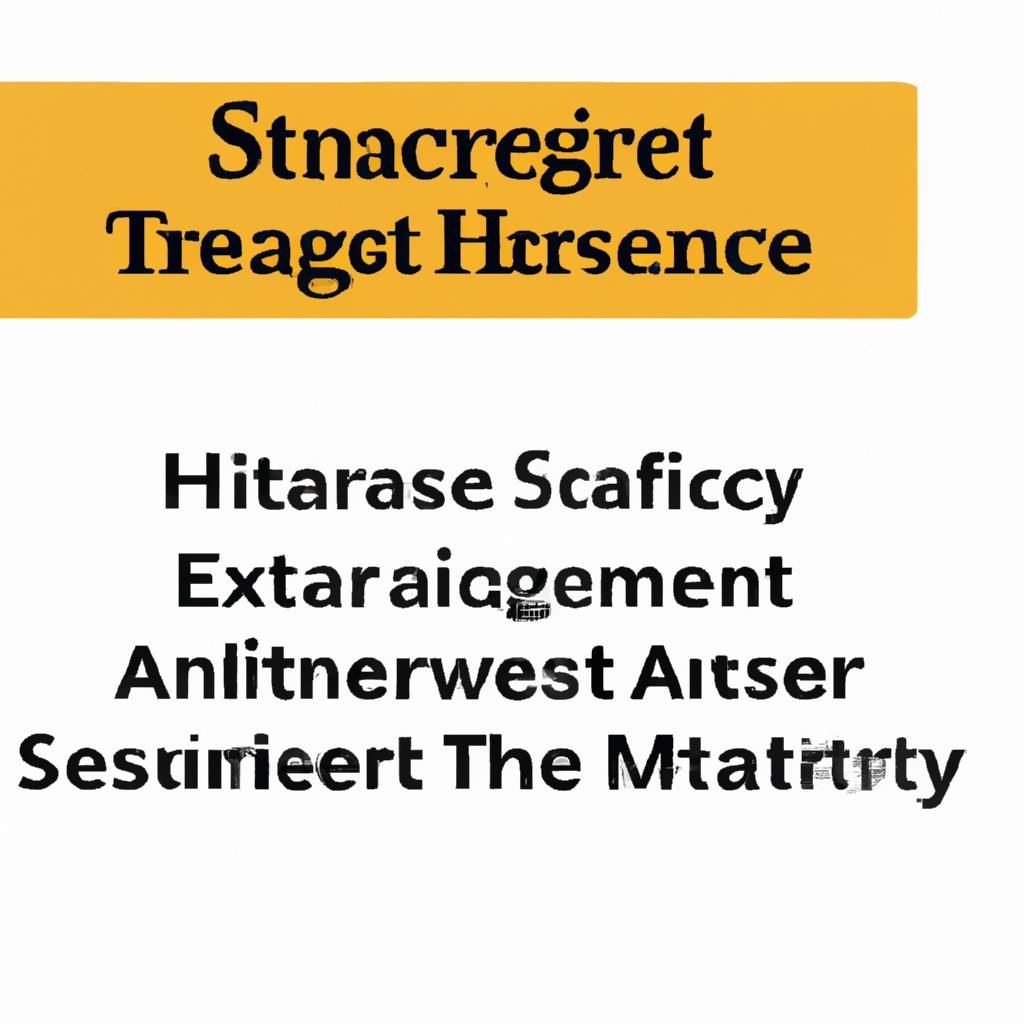In the realm of estate planning, the age-old question of whether it is better to inherit cash or property continues to perplex individuals seeking to secure their financial legacies. As seasoned attorneys at Morgan Legal Group in New York City, we understand the complexities surrounding such decisions, and are here to provide expert guidance on navigating the delicate balance between liquid assets and tangible belongings. Join us as we explore the nuances of inheritance and delve into the considerations that must be taken into account when determining the optimal form of bequest for your loved ones.
Inheritance Dilemma: Cash vs. Property
When faced with the decision between inheriting cash or property, there are several factors to consider before making a choice. Cash offers immediate liquidity and flexibility, allowing heirs to use the funds for various purposes such as investments, debt repayment, or personal expenses. On the other hand, inheriting property can provide long-term value through potential appreciation and rental income. Property also offers a sense of permanence and security, as it can be passed down through generations.
- Cash: Immediate liquidity and flexibility
- Property: Long-term value, potential appreciation, and rental income
| Cash | Property |
|---|---|
| Immediate access to funds | Potential for long-term value |
| Flexibility in use | Security and permanence |
Ultimately, the decision between cash and property inheritance depends on individual circumstances and financial goals. It is advisable to consult with a legal expert, such as our team at Morgan Legal Group in New York City, who specializes in estate planning, probate, and trusts, to determine the best option based on your specific needs and preferences.

Analyzing the Financial Benefits of Inheriting Cash
When it comes to inheriting wealth, the choice between receiving cash or property is a decision that requires careful analysis. While inheriting property can provide long-term financial benefits through potential rental income or property appreciation, inheriting cash offers immediate liquidity and flexibility in investment choices.
Here are some key factors to consider when :
- Immediate liquidity for emergency expenses or investment opportunities
- No need to manage property maintenance or deal with tenants
- Flexibility to invest in a diversified portfolio or use the cash to pay off debt

The Long-Term Value of Inheriting Property
Long-Term Benefits of Inheriting Property
When considering whether it is better to inherit cash or property, it is important to understand . While cash may provide immediate liquidity, property can offer a number of benefits that can have a lasting impact on your financial future:
- Appreciation: Property has the potential to appreciate over time, increasing in value and providing a significant return on investment.
- Income Generation: Rental properties can generate a steady income stream through rental payments, providing a source of passive income.
- Tax Benefits: Property ownership can offer various tax advantages, such as deductions for mortgage interest and property taxes.
| Property | Cash |
|---|---|
| Appreciation | Limited potential for growth |
| Income Generation | No passive income |
| Tax Benefits | Limited tax advantages |

Strategic Considerations for Maximizing Inherited Assets
Inheritance can come in various forms, whether it be in the form of cash or property. Each type of asset has its own unique strategic considerations that must be taken into account when maximizing inherited assets. When deciding whether it is better to inherit cash or property, several factors should be considered:
Benefits of inheriting cash:
- Immediate liquidity for financial needs
- Easier to divide among multiple beneficiaries
- Less maintenance and upkeep costs
Considerations for inheriting property:
- Potential for appreciation in value over time
- Rental income generation
- Emotional attachment and sentimental value
It is essential to carefully assess your individual financial goals and circumstances to determine which type of inheritance would be more beneficial in the long run. Consulting with experienced professionals, such as the estate planning experts at Morgan Legal Group, can help you make informed decisions and develop a strategic plan to maximize your inherited assets.
Q&A
Q: What factors should one consider when deciding between inheriting cash or property?
A: When deciding between inheriting cash or property, one should consider the financial implications, the maintenance costs of the property, the emotional value attached to the asset, and the potential for future growth or value appreciation.
Q: What are some benefits of inheriting cash instead of property?
A: Inheriting cash provides immediate liquidity and flexibility in making financial decisions. It also eliminates the need for property management and maintenance costs.
Q: What are some advantages of inheriting property over cash?
A: Inheriting property can provide a tangible asset with the potential for long-term value appreciation. It can also hold sentimental value and serve as a legacy to pass down to future generations.
Q: How can one make an informed decision when faced with the choice between inheriting cash or property?
A: One can make an informed decision by assessing their current financial situation, their personal preferences and goals, seeking advice from financial professionals, and considering the tax implications of inheriting cash versus property.
Concluding Remarks
Ultimately, the debate of whether it is better to inherit cash or property will continue to spark discussions among individuals and families alike. Both options come with their own set of advantages and disadvantages, and the decision ultimately depends on one’s personal financial goals and circumstances. In the end, whether you receive a windfall in the form of cash or property, it is important to consider all factors before making any decisions. Remember, inheriting wealth is a privilege that comes with great responsibility, so it is crucial to plan wisely and make informed choices to ensure a secure financial future.
 Deciding whether to inherit cash or property can be a tough decision. On one hand, cash offers immediate financial flexibility, while on the other hand, property can provide a long-term investment opportunity. Each option has its own benefits and practical implications that should be carefully considered. In this article, we will explore the advantages and disadvantages of inheriting cash or property, and provide helpful tips for making the decision that best fits your individual situation.
Deciding whether to inherit cash or property can be a tough decision. On one hand, cash offers immediate financial flexibility, while on the other hand, property can provide a long-term investment opportunity. Each option has its own benefits and practical implications that should be carefully considered. In this article, we will explore the advantages and disadvantages of inheriting cash or property, and provide helpful tips for making the decision that best fits your individual situation.
Benefits of Inheriting Cash:
1. Flexibility and Liquidity: One of the main benefits of inheriting cash is the immediate access to liquid funds. Cash can be quickly and easily used for various purposes such as paying off debts, making investments, or covering unexpected expenses. This can provide financial stability and flexibility, especially in times of uncertainty.
2. No Maintenance or Management Required: Unlike property, inheriting cash does not come with any maintenance or management responsibilities. This means you can use the cash as you see fit without having to worry about additional expenses or time-consuming tasks.
3. Lower Risk: Cash is considered a less risky asset compared to property. While property values can fluctuate, cash maintains its value and is not affected by market conditions. This can provide a sense of security knowing that your inheritance will not decrease in value.
Practical Tips for Inheriting Cash:
1. Create a Budget: It is important to create a budget before making any decisions on how to use the inherited cash. Identify any outstanding debts or expenses that need to be addressed, and determine how much of the cash should be allocated for necessary expenses and how much can be saved or invested.
2. Seek Professional Financial Advice: Inheriting a large sum of cash can come with financial obligations and tax implications. Seeking advice from a financial advisor can help you make informed decisions and effectively manage your inheritance.
2. Consider Investing: If you don’t have immediate financial needs, consider investing a portion of the cash for long-term growth. This can provide a steady stream of income and potentially increase the value of your inheritance.
Benefits of Inheriting Property:
1. Long-Term Investment: Inheriting property can be a valuable long-term investment. Depending on the location and condition of the property, its value may increase over time and provide a steady stream of rental income.
2. Diversification of Assets: Inheriting property can also provide diversification of assets. Having a mix of cash and property can reduce your overall risk and provide financial stability.
3. Sentimental Value: Some properties may hold sentimental value, especially if it has been in the family for generations. Inheriting a property can allow you to keep it in the family and provide a sense of connection to your roots.
Practical Tips for Inheriting Property:
1. Determine the Property’s Value: Before making any decisions about what to do with the inherited property, it is important to determine its current market value. This will help you make informed decisions about whether to keep, sell, or rent the property.
2. Understand the Tax Implications: Inheriting a property may come with tax implications, such as property taxes and capital gains taxes if it is sold. It is important to understand these implications before making any decisions about the property.
3. Consider Renting: If the property is in a desirable location and in good condition, consider renting it out for a steady stream of income. However, this option does come with the responsibility of being a landlord.
Case Study: Alex inherited a house from his grandmother. The house was in an up-and-coming neighborhood and had significantly increased in value over the years. Rather than selling the property, Alex decided to rent it out. He used the rental income to pay off his student loans and invest in a retirement fund.
First-Hand Experience: Miranda inherited a large sum of cash from her late grandfather. She used a portion of the cash to pay off her mortgage and invested the rest in a mutual fund. The steady stream of income from the mutual fund allowed her to have financial stability and provided for her children’s education.
In conclusion, whether it is better to inherit cash or property depends on your individual financial situation and goals. Cash offers immediate liquidity and flexibility, while property can provide a long-term investment opportunity and sentimental value. Before making any decisions, it is important to carefully consider the benefits and practical implications of each option. Seek professional advice, create a budget, and evaluate your long-term goals to make the best decision for your inheritance.

